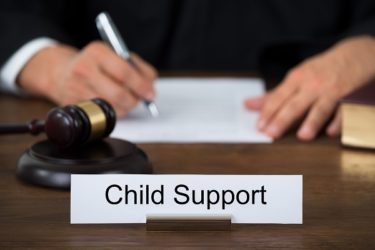Family law deals with issues like divorce, child custody, child support, alimony, and property division. If you are going through a family law issue in California, you likely have many questions about the process and your rights. Certified Family Law Specialist Judy L. Burger answers the top ten questions we’re asked at our California practice about Family Law matters.
Of course, we can only provide the barest facts in an article. More complete explanations and answers to other questions are available in a complimentary consultation. Contact The Law Offices of Judy L. Burger to schedule your consultation.
Top 10 Family Law FAQs
Review these common questions clients routinely ask Attorney Judy Burger during initial consultations at her offices.
1. What is the process for getting a divorce in California?
To get a divorce in California, you must file a petition for dissolution of marriage with the court. You will need to serve your spouse with the petition and wait for their response. If you and your spouse cannot reach an agreement on all issues, such as child custody and property division, the court will schedule a trial to decide these issues for you.
2. How is child custody determined in California?
California courts determine child custody based on the best interests of the child. The court will consider factors such as the child’s age, health, and relationship with each parent. Generally, the court prefers frequent and continuous contact with both parents as long as it is in the child’s best interests.
3. How is child support determined in California?
California law provides guidelines for determining child support. The guidelines take into account the net disposable income of each parent and the amount of time each parent spends with the child. Other factors, such as the child’s needs and the standard of living before the divorce, may also be considered.
4. What is spousal support in California?
Spousal support, also known as alimony, is financial support paid from one spouse to the other after a divorce. Spousal support can be temporary or permanent, depending on the circumstances of the case.
5. How is spousal support determined in California?
California law requires the court to consider various factors when determining spousal support, including the length of the marriage, the standard of living before the divorce, and the age and health of each spouse. The court has discretion in determining the amount and duration of spousal support.
6. How is property divided in a California divorce?
California is a community property state, which means that property acquired during the marriage is generally divided equally between the spouses. However, there are exceptions to this rule, and the court may consider factors such as the length of the marriage and the economic circumstances of each spouse.
7. Can I get a restraining order in a family law case?
Yes, if you are a victim of domestic violence or harassment, you can obtain a restraining order to protect yourself and your children. The court may issue a temporary restraining order, followed by a hearing to determine whether a permanent restraining order is necessary.
8. Can I modify a child custody or support order?
Yes, if there has been a significant change in circumstances, such as a job loss or relocation, you can petition the court to modify a child custody or support order. The court will consider the child’s best interests when deciding.
9. What is mediation in a family law case?
Mediation is a process in which a neutral third party helps the parties in a family law case reach a mutually acceptable agreement. It can be voluntary or court-ordered and can be a cost-effective alternative to litigation.
10. Do I need a lawyer for a family law case in California?
While you are not required to have a lawyer for a family law case in California, it is highly recommended. Family law cases can be complex and emotional, and having a knowledgeable and experienced lawyer can help protect your rights and interests.
Seasoned Family Law Representation in California
Family law issues in California can be challenging and emotional, but understanding your rights and the legal process can help alleviate some of the stress. If you have questions about a family law issue in California, contact The Law Offices of Judy L. Burger, with eight offices across the state to serve you.











